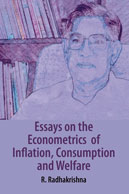New Releases...
Download Catalogue...
Download Excel Data
Download PDF Catalogue
You will get a Excel file with detail about catalogue.
You will get PDF file with detail about catalogue.
Detailed info...
Poverty and Economic Reforms
The Social Concerns
Gurdip Singh Aurora (Ed.)
About the Book
<p>This book is based on research carried out in a few villages in South India, when they were at the threshold of their economies and society being exposed to new economic order. The chief concern was to examine the impact of the economic reforms on the poor with a focus on levels and intensity of poverty, social dimensions of deprivation, food security and the role of MNCs. The research itself was carried out with the active involvement of voluntary organisations engaged in helping the poor to combat several evils including that of poverty.</p>
<p> </p>
<p>This volume brings together several essays by specialists such as, V.M. Rao, Thomas Paul, B.P. Vani, K. Gayithri, M. Indira, besides a co-authored essay by the late professor M.N. Srinivas.</p>
<p><br />
This volume is expected to be of help not only to academicians, policy makers, but also to voluntary organisations and other activists engaged in understanding the responses of the poor to the sweeping economic changes.</p>
About the Author(s) / Editor(s)
<p><strong>Professor Gurdip Singh Aurora</strong> was Head of the Sociology Unit in the Institute of Social and Economic Change, Bangalore. Earlier, he had been a Professor in the Department of Sociology, and Dean of Social Sciences at the Central University, Hyderabad. He graduated from the London University with a Masters Degree in Economics and later obtained Doctoral Degree from the Delhi University. Renowned Professor M.N. Srinivas had guided his work, later published as a book "The New Frontiers Men" in 1967. Other books authored by him include : "The Tribe Caste Class Encounters" (1970), "Technological Change and Industry" (1971), "Theory and Practice of Transfer of Technology" (1993). He has also taught in several prestigious Universities in India and abroad.</p>
<p><br />
Currently, he is the Chief Mentor of a Non-Government Organisation, Atmdeep, and works as a freelance consultant at Bangalore.</p>
<p> </p>
<p> </p>
<p><strong>INSTITUTE FOR SOCIAL AND ECONOMIC CHANGE (ISEC):</strong><br />
<br />
Institute for Social and Economic Change (ISEC), Bangalore is a social science research institute, and the largest among the 27 institutions supported by Indian Council of Social Science Research (ICSSR). Its mission and vision are to outreach the society, policy makers and civil communities with a scope of findings based on analytical and action research of social and economic importance for the betterment of society. For further details visit www.isec.ac.in</p>
Contributors
<p><strong>G. S. Aurora</strong> retired from the Institute for Social and Economic Change (ISEC) having been Professor and Head of Sociology Unit. Earlier he had worked in the Central University, Hyderabad, North Eastern Hill University, Gowahati. He had been a visiting professor in many prestigious universities and institutes, including the Delhi University, and Administrative Staff College of India at Hyderabad. He has published extensively, and is currently engaged in voluntary action for development and as a consultant.</p>
<p> </p>
<p> </p>
<p><strong>K. Gayithri</strong> is an economist, and works in ISEC as an Associate Professor. She obtained her doctoral Degree from the University of Mysore. She has researched and published on themes of fiscal decentralisation, tax policies, etc. She had been a recipient of Shastri Indo-Canadian Fellowship during the years.</p>
<p> </p>
<p> </p>
<p><strong>M. Indira</strong> worked as a research officer in ISEC for over four years before taking up a position as a Reader in Economics in the University of Mysore. Her doctoral degree is from the University of Mysore.</p>
<p> </p>
<p> </p>
<p><strong>V. Janardhan</strong> obtained his Masters degree from the University of Hyderabad. He has been associated with voluntary work and is associated with several non-government development organisations. He worked as a research officer in ISEC during 1996-97.</p>
<p> </p>
<p> </p>
<p><strong>V. M. Rao</strong> is a visiting professor at ISEC. He was associated with ISEC as a Professor of Economics, and headed the Rural Economics Unit before his retirement in 1991. Earlier he had been a member of the Agricultural Prices Commission of the Government of India. He has published several books and papers in reputed journals both in India and elsewhere. He was the President of the Indian Society for Agricultural Economics during 1998-99.</p>
<p> </p>
<p> </p>
<p><strong>M. N. Srinivas</strong> is rightly regarded as having been one of the doyens of Indian sociology. Having founded the departments of Sociology in the M S University (Baroda), and Delhi School of Economics (Delhi), he joined Professor V.K.R.V Rao in founding the ISEC at Bangalore. He was its Joint Director, and later the Chairman of the Board of Governors. Among his several well-known books are the Remembered Village (1976), Social Change in Modern India (1968). He edited 'Caste: Its Twentieth Century Avatar' (1996). At the time of his death in 1999, he had been an honorary advisor to several research projects at ISEC.</p>
<p> </p>
<p> </p>
<p><strong>M. Thomas Paul</strong> was the RBI Chair at ISEC until 1998. Earlier he had been working as an economist in the National Institute of Banking and Management (NIBM), where hi is now a Professor.</p>
<p> </p>
<p> </p>
<p><strong>V. P. Vani</strong> has a Masters degree in Statistics from Bangalore University. Currently she is an Assistant Professor in the RBI Unit at ISEC, with a special interest in Industrial Economics. Her research and publications are on different aspects of poverty and income distribution in India.</p>
Print Brochure...
Print as it is
Customised brochure
You will get a printout of what you see on your screen under 'Detailed Info'(Uneditable).
You will have the opportunity to edit the text and adjust the extent to fit on A4 size sheet or more accordingly as you desire. Plus, you can download the edited/customised Brochure or simply print it (CTRL + P).


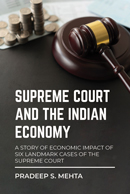


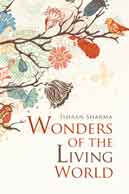
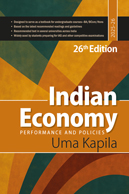
-web-194.jpg)
-front.jpg)
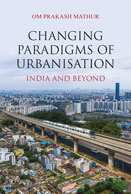






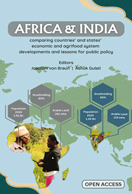
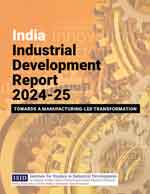
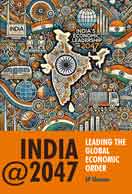
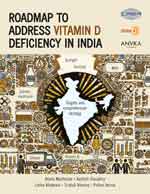
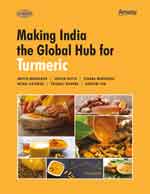
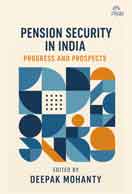
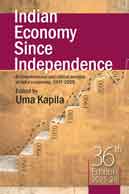
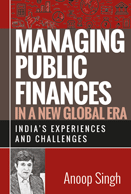
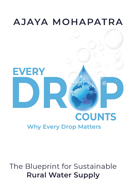
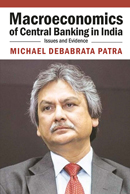

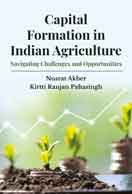



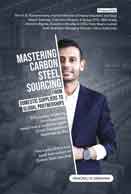







-COVER-web-194.jpg)





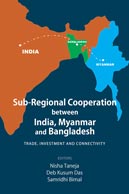






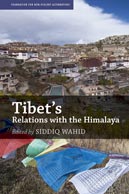



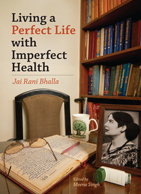












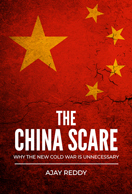
.jpg)






